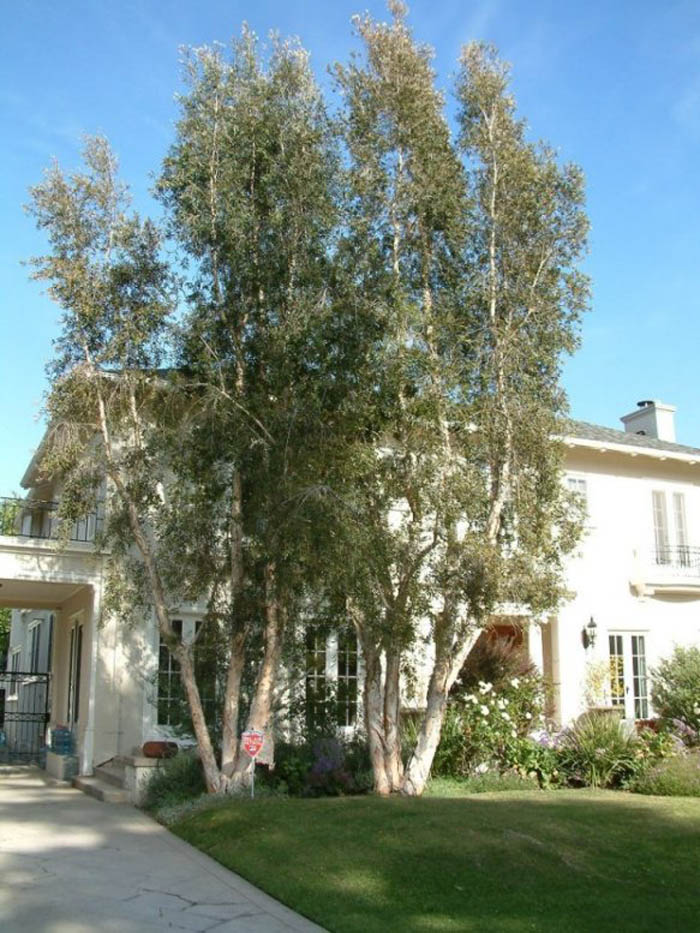Melaleuca quinquenervia
Paperbark Tree, Cajeput Tree

Description
Paperbark or Cajeput (Melaleuca quinquenervia) is an Australian native that is known for its beautiful, papery bark that unravels in sheets on the trunk. The tree can reach 40’ tall and 15’-25’ wide. It is often grown as a multi-trunk tree, and it makes a beautiful specimen tree in a wide range of garden styles. It is unparticular about its soil, and it can thrive in a wide range of moisture conditions. If this tree is selected for a small- to medium-sized garden, measures must be taken to keep topical roots from forming. Drip irrigation or deep, infrequent watering is best. If this tree is planted near an area with overhead sprinklers, root barriers may be necessary to keep roots away from the wetter parts of the garden. Once the tree reaches a size where it could benefit from some shaping, it is best to have a licensed arborist perform the work. This tree should be planted at least eight feet away from any hardscape areas, 15 feet from structures such as houses and buildings, and not near any powerlines. Shrubs and perennials should be planted about five feet away from this tree. It should be irrigated for about 45 minutes once a week when using most in-line drip irrigation systems.
Plant Type
Tree
Height Range
12-25', 25-40'
Flower Color
White
Flower Season
Summer, Fall
Leaf Color
Green
Bark Color
Tan, White
Fruit Color
n/a
Fruit Season
n/a
Sun
Full
Water
Low
Growth Rate
Fast
Soil Type
Sandy, Clay, Loam, Rocky, Unparticular
Soil Condition
Average, Poor
Soil pH
Neutral
Adverse Factors
n/a
Design Styles
Mediterranean, Seascape, Spanish
Accenting Features
Multi-trunk Tree, Showy Flowers, Specimen
Seasonal Interest
Winter, Summer, Fall
Location Uses
Background, Lawn, Patio, Street Tree
Special Uses
Screen, Wind Break, Fire Resistant
Attracts Wildlife
n/a
Water Saving Tip:
Water between sunset and sunrise when temperatures and wind are the lowest.